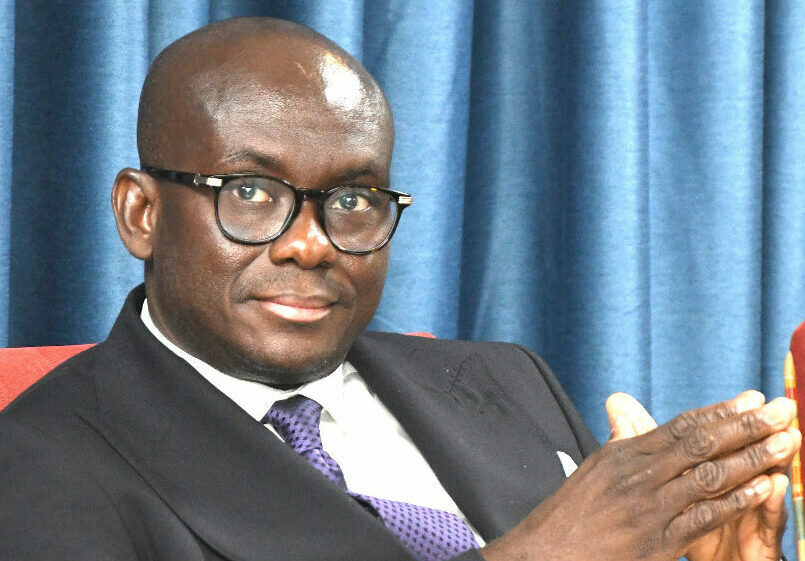In a contentious development surrounding Ghana’s political landscape, Attorney General Godfred Odame has leveled accusations against the sponsors of the Anti-LGBTQ Bill, alleging that their motives are driven primarily by political considerations rather than genuine concerns for public welfare. The remarks by Odame have reignited debates about the intersection of politics, morality, and human rights in the West African nation, prompting intense scrutiny of the proposed legislation and its proponents.
**Background:**
The Anti-LGBTQ Bill, formally known as the Promotion of Proper Human Sexual Rights and Ghanaian Family Values Bill, has been a subject of fierce controversy since its introduction in Parliament. The bill seeks to criminalize LGBTQ activities and advocacy, imposing harsh penalties on individuals and organizations perceived to be promoting or supporting LGBTQ rights in Ghana.
Proponents of the bill argue that it is necessary to uphold traditional Ghanaian values and protect the sanctity of the family institution from what they perceive as external influences and moral decay. However, critics have condemned the bill as discriminatory, unconstitutional, and a violation of fundamental human rights, sparking nationwide protests and international condemnation.
**Accusations by Attorney General Godfred Odame:**
Attorney General Godfred Odame, a prominent legal figure in Ghana’s government, has waded into the fray with allegations against the sponsors of the Anti-LGBTQ Bill. In a statement issued during a press conference, Odame accused the proponents of the bill of having ulterior political motives disguised as moral crusades.
According to Odame, the sponsors of the Anti-LGBTQ Bill are seeking to exploit public sentiment and capitalize on moral outrage for political gain, rather than engaging in genuine dialogue or evidence-based policymaking. He argued that the bill represents a cynical attempt to score political points and rally support among conservative segments of the population ahead of the upcoming elections, rather than addressing substantive issues facing the nation.
Moreover, Odame warned against the dangers of politicizing sensitive social issues such as LGBTQ rights, emphasizing the need for rational discourse, respect for diversity, and adherence to constitutional principles in shaping public policy.
**Reactions and Fallout:**
Odame’s accusations against the sponsors of the Anti-LGBTQ Bill have sparked a flurry of reactions from both supporters and critics of the proposed legislation. While some have praised Odame for his courage in speaking out against political opportunism and manipulation, others have dismissed his remarks as politically motivated and out of touch with public sentiment.
Proponents of the Anti-LGBTQ Bill have vehemently denied the allegations leveled by Odame, insisting that their efforts are driven by genuine concerns for preserving Ghanaian cultural values and protecting the moral fabric of society. They argue that the bill reflects the will of the people and their desire to resist what they perceive as foreign influences undermining traditional norms and beliefs.
On the other hand, critics of the bill have welcomed Odame’s intervention, viewing it as a sign of growing dissent within the government ranks against discriminatory legislation. They argue that the Anti-LGBTQ Bill represents a dangerous precedent for human rights violations and poses a threat to Ghana’s democratic principles and international reputation.
**Political Maneuvering and Electoral Calculations:**
At the heart of the controversy surrounding the Anti-LGBTQ Bill lies the complex interplay of political maneuvering and electoral calculations. With Ghana set to hold elections in the near future, politicians and parties are vying for support and seeking to mobilize voters along ideological lines.
The debate over LGBTQ rights has emerged as a polarizing issue, with some politicians exploiting public fears and prejudices to advance their political agendas. By framing the Anti-LGBTQ Bill as a defense of Ghanaian cultural values and family traditions, sponsors of the legislation hope to garner support from conservative voters and shore up their electoral prospects.
However, critics argue that such tactics risk further entrenching divisions within Ghanaian society and undermining the country’s commitment to pluralism, tolerance, and respect for human rights. They caution against the instrumentalization of social issues for political gain and urge policymakers to prioritize the well-being and dignity of all citizens, regardless of sexual orientation or gender identity.
**Conclusion:**
As Ghana grapples with the fallout from the Anti-LGBTQ Bill and the accusations leveled by Attorney General Godfred Odame, one thing remains clear: the need for robust debate, informed dialogue, and principled leadership in navigating sensitive social issues. Whether driven by genuine concerns for public welfare or political expediency, policymakers must uphold the values of democracy, human rights, and rule of law in shaping the nation’s future trajectory.
As the controversy surrounding the Anti-LGBTQ Bill continues to unfold, Ghana stands at a crossroads, with important decisions to be made about the kind of society it aspires to be and the values it seeks to uphold. In the final analysis, the true test of Ghana’s democratic maturity lies in its ability to protect the rights and dignity of all citizens, regardless of their sexual orientation or gender identity, and to build a society that is inclusive, just, and respectful of diversity.
story filed by: Nana Kwaku Duah





